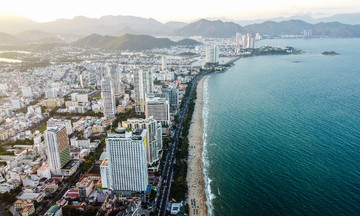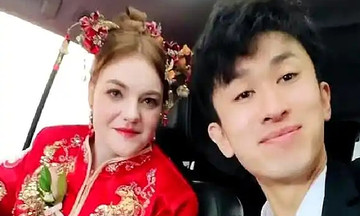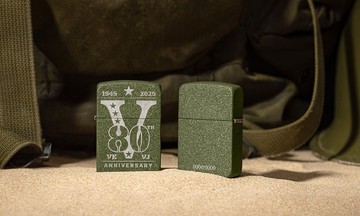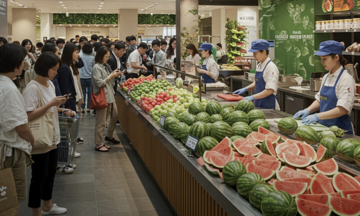Ropa Vieja, considered Cuba's national dish, consists of shredded beef simmered in tomato sauce with vegetables. Cubans tell a story of a poor man with only ragged clothes. In desperation, he shredded them, put them in a pot, prayed, and they transformed into meat for his family.
"Though an old tale, food scarcity in Cuba remains a reality," says 30-year-old Yen Nhi from Ho Chi Minh City.
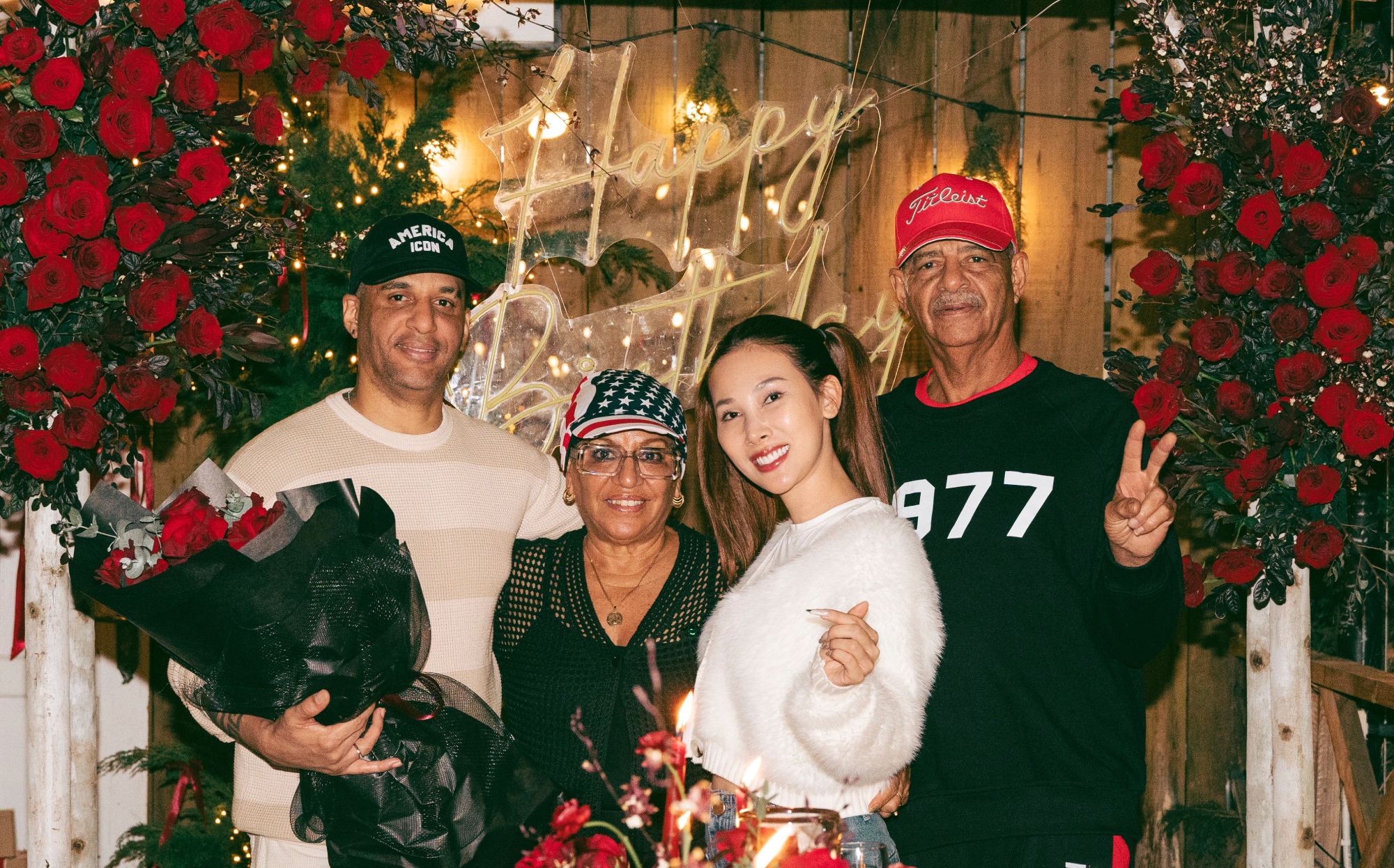 |
Maikel (far left) with his parents and Yen Nhi in Ho Chi Minh City in 2024. Yen Nhi was the runner-up in Sao Mai 2017, and Maikel is a musician. Photo: Provided by the subject |
Maikel (far left) with his parents and Yen Nhi in Ho Chi Minh City in 2024. Yen Nhi was the runner-up in Sao Mai 2017, and Maikel is a musician. Photo: Provided by the subject
Nguyen Yen Nhi, originally from Can Tho, has been married to Cuban musician Martinez Vega Maikel for almost a year. From the start of their relationship three years ago, Nhi was captivated by Cuban culture and people.
Maikel often took Nhi to gatherings of over 100 Cubans in Ho Chi Minh City, where guitar music blended with cajon drums and mojitos evoked the Caribbean.
"When I met him, I was dealing with depression from a past relationship. Maikel's Cuban spirit lifted me from those dark days," she shares.
For Cubans, dancing and singing are as vital as breathing. Whether watching TV or cooking, Maikel is always dancing. He grooves to music on the streets. "Cubans elevate the energy around them," Nhi says. "He got me into salsa, and now it's a habit."
Maikel's positivity shines through even in tough times. Starting their music company brought paperwork and staffing issues. Sometimes, right before a performance, a singer would cancel, leaving Nhi frantic. Maikel would calmly reassure her and find a replacement.
Initially, Nhi thought this was just her husband's personality. Meeting his friends and family revealed it's a Cuban trait. They face hardship with composure, finding solutions instead of complaining. Their optimism isn't tied to material wealth.
Once, Nhi’s mother-in-law, Vega Hernandez Juana Elena, received concerning news about her blood pressure and cholesterol. Refills required long lines or expensive black market purchases. A worried Nhi offered to send medicine, but Elena waved her off. "I'll exercise or find another way," she said. "This isn't something to be negative about."
Even during important events, this calmness prevails. In 11/2024, just before Nhi's wedding, Maikel's brother, Martinez Vega, couldn't attend due to unforeseen work. Disappointed after days of excitement, he consoled his sister-in-law. "The wedding is one day, but you'll live with my brother forever. We have a lifetime to see each other," Vega said.
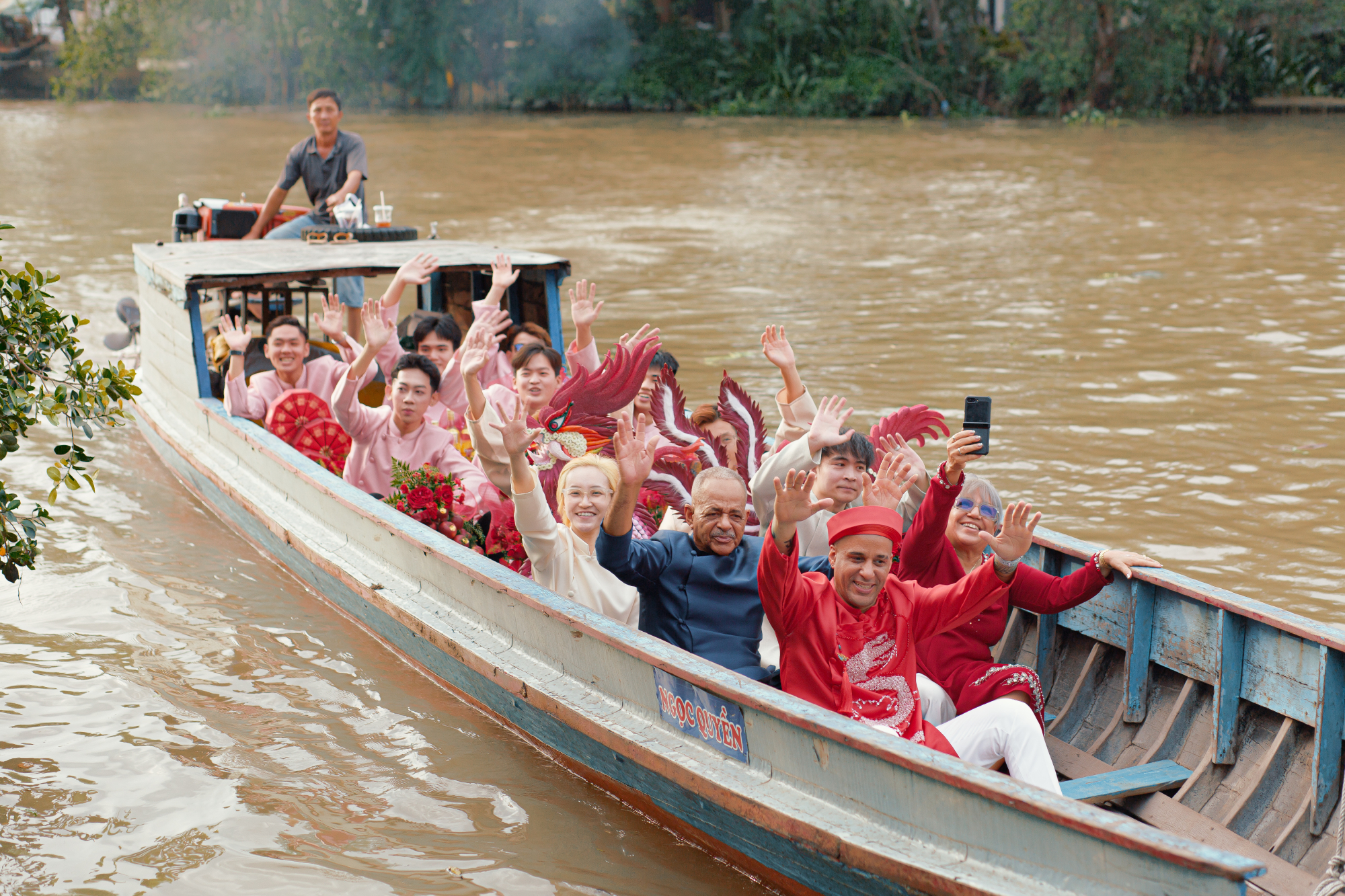 |
Maikel and his parents led the boat procession to pick up the bride in the river region of Can Tho, 11/2024. Photo: Provided by the subject |
Maikel and his parents led the boat procession to pick up the bride in the river region of Can Tho, 11/2024. Photo: Provided by the subject
Nhi also realized Cubans value family and respect women. Initially, she felt awkward when Maikel tied her shoes in public, until she saw her father-in-law do the same for his wife.
As an only child, Nhi was pampered and unused to housework. Maikel showed her the joy of caring for a home. He always keeps their living space clean and beautiful. "He sees this responsibility as his purpose," Nhi says. He's also punctual, always informing her if he'll be even 5-10 minutes late.
These family anecdotes reflect the larger picture of Cuba, where scarcity is a way of life for millions. The Caribbean island faces its worst economic crisis in decades, with declining GDP, inflation, and shortages of food, medicine, fuel, water, and electricity.
Even Havana, where much of Maikel's family lives, experiences four-day power outages. People endure sweltering darkness. With stoves unusable, families cook with wood. Bathing and washing dishes become luxuries. Long lines for rice, oil, and milk powder are commonplace.
Years of scarcity shaped her in-laws' mindset. They never waste food. Everything is carefully portioned, and frugality is a survival tactic. Nhi witnessed this when they visited Vietnam. Leftover lunch didn't stop Nhi from craving something else. She suggested eating out, but her in-laws insisted on finishing the food at home. They disliked refrigeration and abhorred waste. If they planned to eat out, they wouldn't cook at home.
"Perhaps due to their accustomed scarcity, even a single bread roll I buy for my husband elicits sincere gratitude. My mother-in-law is incredibly grateful for spa treatments and haircuts," Nhi shares. Elena often expresses her wish for affordable, convenient, and good food like in Vietnam.
Maikel's parents now live with his brother in Mexico. But other relatives remain in Cuba, struggling daily. During calls home, Nhi and Maikel hear stories of rationing a liter of oil for a month. Last year, her husband's cousin, battling cancer, had to reuse disposable urinary bags due to unavailability.
"It's heartbreaking that they lack even basic necessities. I often send money, supplements, and urinary bags," Nhi says.
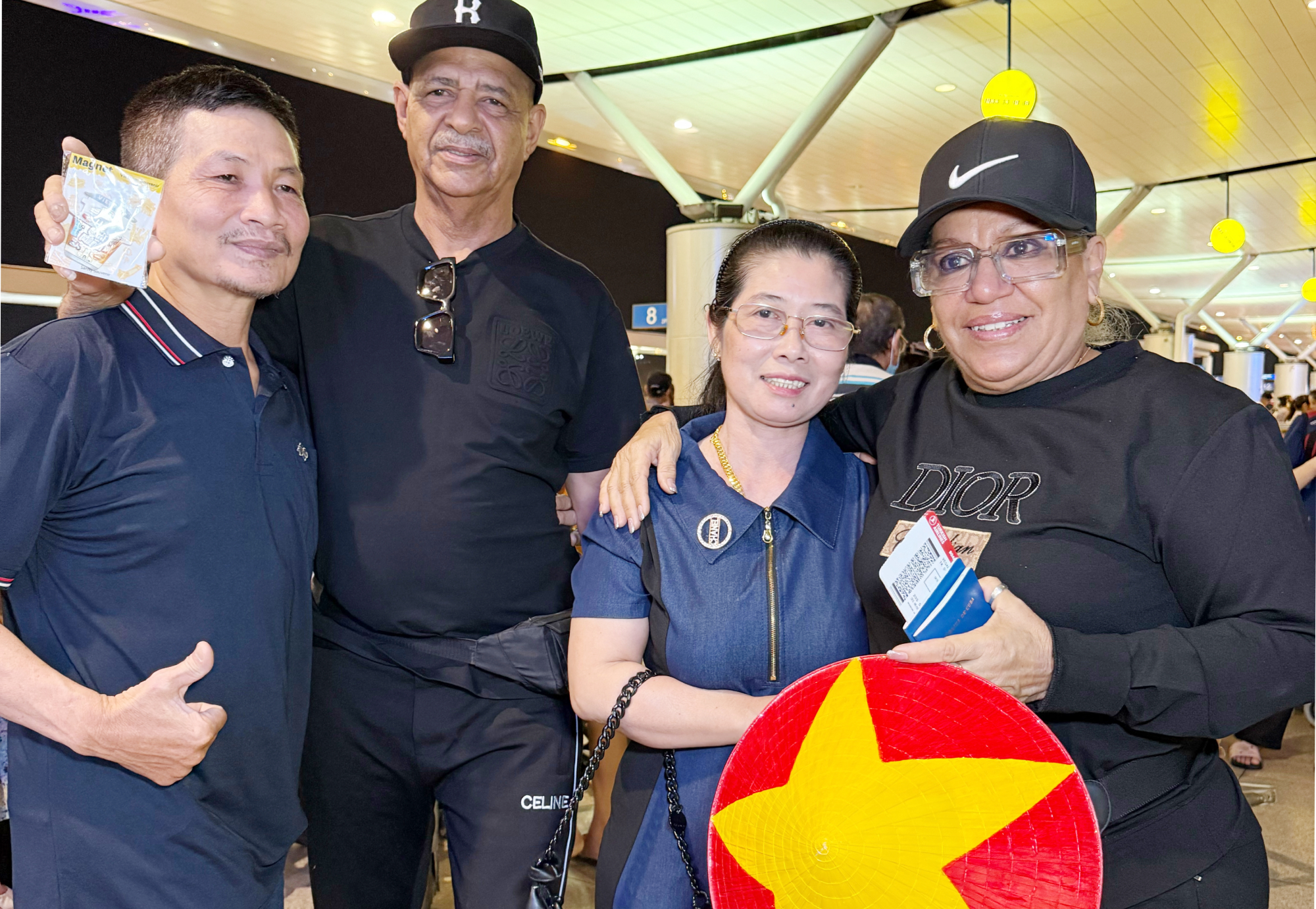 |
Nhi's parents see her in-laws off, carrying gifts from Vietnam. Photo: Provided by the family |
Nhi's parents see her in-laws off, carrying gifts from Vietnam. Photo: Provided by the family
Hardship drives many Cubans to leave. Maikel is one of them. Arriving at Noi Bai Airport in 2018, he intended to stay a few months. But the friendly smiles and warm welcomes kept him, and Vietnam became his second home.
For their son's wedding, Maikel's parents visited Vietnam for almost three months. They fell in love with the S-shaped country. Upon leaving, Elena wistfully remarked, "Now I understand why Maikel doesn't return. Vietnam is so wonderful, I want to stay too."
She brought back conical hats, Vietnamese flags, cups with Vietnam's image, and repeatedly declared, "Everything in Vietnam is number one."
A few days ago, when Nhi and Maikel called for her birthday, asking about gifts, Elena smiled, "I only wish to visit Vietnam again."
Phan Duong








